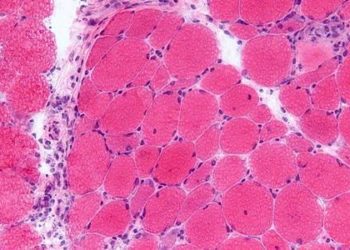The STORM trial: treatment refractory multiple myeloma patients experience response with selinexor
1. Approximately a quarter of multiple myeloma patients that had refractory disease despite treatment with a proteasome inhibitor, immunomodulatory agent, and daratumumab experienced treatment response with selinexor and dexamethasone.
2. Thrombocytopenia was a common adverse event in patients.
Evidence Rating Level: 2 (Good)
Study Rundown: Relapse is common for multiple myeloma patients despite the use of therapies than span a number of treatment mechanisms. Triple class refractory patients, those treated with a proteasome inhibitor, immunomodulatory agent, and monoclonal antibodies previously, are becoming more common and these patients have poor survival outcomes. Exportin 1 is a nuclear exporter of various pro-oncogenic materials and is overexpressed in myeloma patients. Selinexor is a recently approved oral inhibitor of the exportin 1 nuclear exporter. A previous dose finding study showed selinexor with dexamethasone in triple-refractory multiple myeloma patients resulted in response for a portion of the patients. The Selinexor Treatment of Refractory Myeloma (STORM) part 2 study further evaluates treatment of triple refractory patients with selinexor and dexamethasone. The primary outcome of partial response or better (overall response) occurred in 26% of patients. Median overall survival in these patients was 8.6 months. Thrombocytopenia occurred in the majority of patients.
This study suggests efficacy of a novel treatment in a treatment resistant multiple myeloma population with poor survival outcomes. Strengths of the study include evaluation of multiple response outcomes while it is limited by the very high rate of treatment discontinuation.
Click to read the study in NEJM
Relevant Reading: A phase 1 clinical trial of single-agent selinexor in acute myeloid leukemia
In-Depth [prospective cohort]: This phase 2b, open-label, single-arm trial enrolled patients from 2015 to 2018. Eligible patients had multiple myeloma, were reasonably functional according to a performance status score, had adequate liver/kidney/hematopoietic function, and had disease refractory to a proteasome inhibitor, immunomodulatory agent, and monoclonal antibody therapy. All patients (n=122) received 80mg of selinexor and 20mg of dexamethasone biweekly in 4-week cycles until death, disease progression, or discontinuation. Patients were provided with antiemetic medications. The primary endpoint was overall response, defined as a 50% or greater reduction in serum myeloma protein. Overall response was observed in 26% of patients (95% confidence interval [CI], 19 to 35) and 2 patients had a complete response. Discontinuation of treatment due to any cause occurred in 96% of patients, while 18% of patients discontinued treatment due to an adverse event considered related to treatment. Median time to a clinical response was 4.1 weeks. Median progression free survival was 3.7 months (95% CI, 3.0 to 5.3) and median overall survival was 8.6 months (95% CI, 6.2 to 11.3). Thrombocytopenia and occurred in 73% of patients, respectfully. Grade 3 or 4 thrombocytopenia occurred in 59% of patients. Adverse events that resulted in dose modification or interruption occurred in 80% of patients. Serious adverse events occurred in 63% of patients.
Image: PD
©2019 2 Minute Medicine, Inc. All rights reserved. No works may be reproduced without expressed written consent from 2 Minute Medicine, Inc. Inquire about licensing here. No article should be construed as medical advice and is not intended as such by the authors or by 2 Minute Medicine, Inc.







